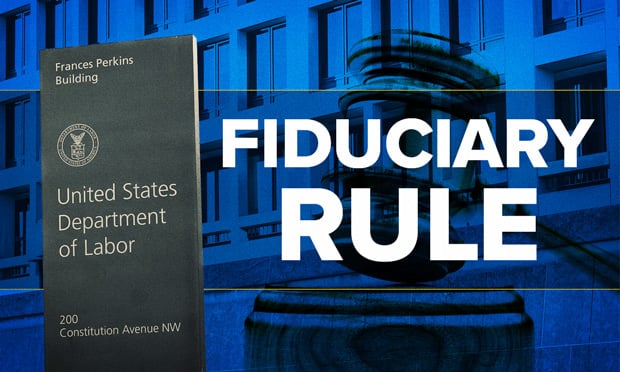 The Department of Labor's new Retirement Security Rule is facing its first legal challenge just days after it was finalized April 23. Industry observers expect it to be the first of several lawsuits to challenge the rule set to go into effect Sept. 23.
The Department of Labor's new Retirement Security Rule is facing its first legal challenge just days after it was finalized April 23. Industry observers expect it to be the first of several lawsuits to challenge the rule set to go into effect Sept. 23.
In a lawsuit filed in the U.S. District Court for the Eastern District of Texas, plaintiffs said the department exceeded its authority in crafting the rule and asked the court to vacate the rule under the Administrative Procedures Act on the grounds it is contrary to law as well as arbitrary and capricious. The lawsuit calls the rule an "assault on insurance agents selling annuities," and said it reflects deep-rooted misunderstandings and bias on the part of the DOL against annuities and the insurance sales channel through which they are sold.
Plaintiffs include the Federation of Americans for Consumer Choice Inc., a trade organization whose members are independent marketing organizations, insurance agents and agencies that market fixed insurance products including annuities.
Recommended For You
Complete your profile to continue reading and get FREE access to BenefitsPRO, part of your ALM digital membership.
Your access to unlimited BenefitsPRO content isn’t changing.
Once you are an ALM digital member, you’ll receive:
- Breaking benefits news and analysis, on-site and via our newsletters and custom alerts
- Educational webcasts, white papers, and ebooks from industry thought leaders
- Critical converage of the property casualty insurance and financial advisory markets on our other ALM sites, PropertyCasualty360 and ThinkAdvisor
Already have an account? Sign In Now
© 2025 ALM Global, LLC, All Rights Reserved. Request academic re-use from www.copyright.com. All other uses, submit a request to [email protected]. For more information visit Asset & Logo Licensing.








